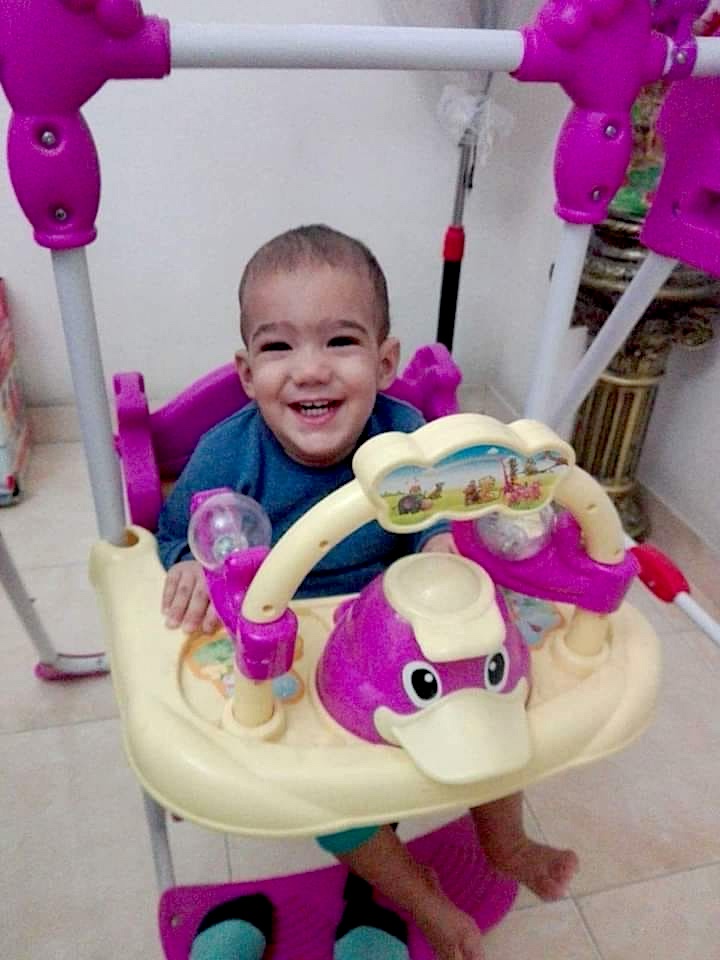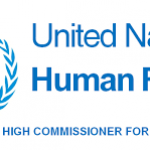By Amira El Masry – Coptic Solidarity –
Mikhail, not yet eight years old, woke up one day to find himself torn between Christianity and Islam. All he knew was a safe home and a caring family, but suddenly he found himself ripped away from his family and taken to a care facility (nursing home.)
The details date back to 2016, when a newborn baby was found in front of the office of Fr. Morcos Girgis of the ‘Great Martyr Mar Girgis’ Church in Abu Zaabal, wrapped in a wrap with a picture of the Virgin Mary, according to witnesses, and according to what the family stated in their lawsuit – which was seen by Coptic Solidarity – in which they sued the Minister of Social Solidarity and the head of the Higher Committee for Alternative Families at the Ministry of Social Solidarity.
The child was in poor condition, which prompted the church members who found him to call Dr. Ramses Naguib Boulos, who is the director of the Mar Girgis clinic next to the church, to examine him. First aid was administered, and then the doctor expressed his desire to adopt and care for the child, as he had no children of his own.
After nearly a year and a half, as the family says in the lawsuit, the child was taken away from them, under the pretext that he was a Muslim and should be placed in a (government-controlled) care home. This prompted them to file lawsuit No. 12864 of 78 judicial year before the Administrative Court of Justice. As of this writing, the court ruled (on January 23) that it had no jurisdiction over the case, and the child – whose name was changed from Mikhail to Karim – is still in a care home run by the Ministry of Social Solidarity. The family, who is still unable to see him or check on him, is pondering the next legal move, either appealing the ruling, or filing the case at a higher level, the Supreme Administrative Court.

Mikhail and Shenouda
This incident brings to mind the similar incident of the child Shenouda, who was also taken away from his family, and after a lengthy legal process and social media campaigns, the Public Prosecution decided to return him to his family after seeking the opinion of the Mufti of the Republic, who issued an opinion (fatwa) that the child follows the religion of the Christian family that found him in the first place.
The story of Shenouda, which began in 2018, resembles Michael’s case. Shenouda was found, according to the family’s statements at the time, in front of a church. The couple said in several TV and press interviews that finding the child at the door of a church is a clear indication of the religion of his biological parents. However, he was taken away from them after nearly 4 years spent as a normal child living among a family who provided him with care and protection.
These two incidents raise many questions, chief among them: Why is the state interested in children’s religion, or more specifically in ensuring that all children of unknown parentage become followers of the Islamic religion, regardless of the circumstances of finding them? Why ignore the impact of the consequences of removing a child who has become accustomed to a stable form of life provided by a foster family, to become one of the children in a care facility, losing his room, his bed, his toys and his parents, whom he only knows? Why does the state not give primary attention to the interest of the child, regardless of the religion he is to follow, who at this age does not know the difference between religions, and lacks the ability to make a choice?
Religion of ‘Innate Nature‘
“Born on the religion of innate nature” this phrase may summarize the state’s approach. It assumes that all children of unknown parentage must follow the “innate nature” which, in the state’s view, is as the Islamic religion. But what’s the rationale behind this answer and the perceived threat if the state allows a Christian family to adopt a child of unknown parentage, providing them with a decent life.
To try to answer more clearly, we may reverse the situation: What if ‘Mikhail’ had been found by a Muslim family in front of a church door, and they wished to adopt him; would the state move to take him away on the grounds that because he was found at a church entry, it can be concluded that his biological family were Christians, and therefore the child follows the same religion? Of course not! because, as mentioned above, the state believes that everyone is born in an “innate natural religion.” Rather, it would have encouraged that wish, because no matter how strong the chances of the child belonging to the Christian religion are, from the point of view of the state (and its security services), the child simply “returned” to the family that follows the correct religion.
How can “cruelty” be the right decision that the state adopts and follows? It happened with Shenouda and is happening again with Mikhail. Tearing a child from his family is cruel, and taking him away from his clothes that he loved and chose with his parents, from his food that his mother prepares for him, from his toys that he cuddles with before bed, and perhaps a story that the family tells; is unparalleled cruelty and unjustified, so where is the best interest of the child that should be the basis for dealing in cases related to children?
Gains and Damages
Beyond the harsh emotions experienced by the child and the family, let’s examine the gains and risks. In such cases, the state seems to achieve nothing but damages. The sudden life change will undoubtedly impact the child’s psyche, possibly leading to future attempts to escape from the care facility. Even if it’s an alternative family, the child won’t receive the same treatment as within their biological family.
In the previous lawsuit filed by the Shenouda family, and in the current one filed by the Mikhail family, both families emphasized that the child was found in front of a church, suggesting that the biological mother is a Christian. But despite the confirmation of the matter through witnesses in both lawsuits, the court did not consider this to be sufficient or evidence to be taken into consideration. The court seemed more focused on proving that the child is Muslim, despite being found in front of a church and wrapped in a blanket with an image of the Virgin Mary.
The state follows laws with a religious reference, which lead to discriminate between citizens rather than their interests, as the state always pretends to emphasize. Egyptian law theoretically guarantees freedom of belief and allows those over the age of 18 to change their religion. however in practice it is impossible for a Muslim to convert to Christianity. On the other hand, in the opposite case, it is easy and welcomed.
Current Laws
The Egyptian state prohibited adoption in its broader sense with the issuance of Child Law No. 12 in 1996, followed by several amendments. Instead, it adopted the “Alternative Families System,” aiming to place children deprived of family care, especially those of unknown parentage, with families selected based on specific criteria. This propmts institutions to reject adoption requests by Christians, claiming that it conflicts with the public order.
Although the Personal Status Law does not clearly specify the religion of the unknown parentage, or how the religion is listed on the birth certificate, it is customary for the Civil Status Authority (under the Ministry of Interior), to assign an Islamic name to the child, in accordance with Islamic law. This occurs despite the lack of a clear legal text mandating this.
Regarding Mikhail’s case, the Administrative Court ruled that it lacks jurisdiction, emphasizing that the decision to place the child in a care facility was issued by the Public Prosecution, not the Ministry of Social Solidarity. The child hence remains in the care facility, and the family continues to try again with legal efforts.
On the other hand, Mikhail’s case received limited media coverage, possibly due to the family’s preference to stay out of the spotlight or media outlets’ reluctance to address the issue. Shenouda was more fortunate than Mikhail, as his case received a lot more media coverage and social media campaigns, which may have influenced the prosecutor’s decision to return him to his family after consulting the Grand Mufti.
However, the cases are far from over. Even if Mikhail becomes fortunate, he won’t return to his previous life after spending years deprived of family care. The question, which we already know the answer to, remains: What did the state gain from these cases?






The coptic community must move as a union force to not only gain their social rights and security. But also to stop involve Egypt in a muddy of fanaticism and ignorance.